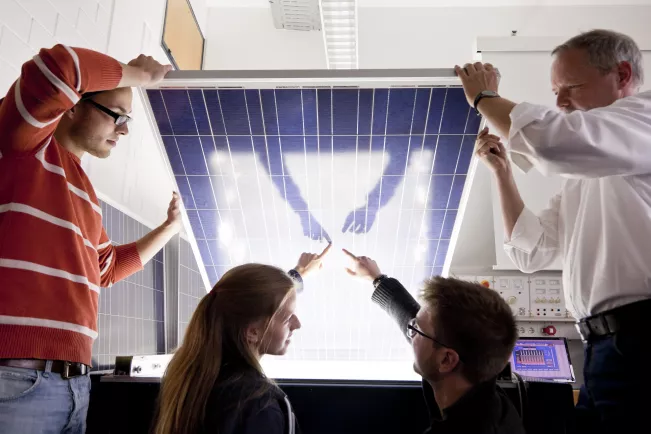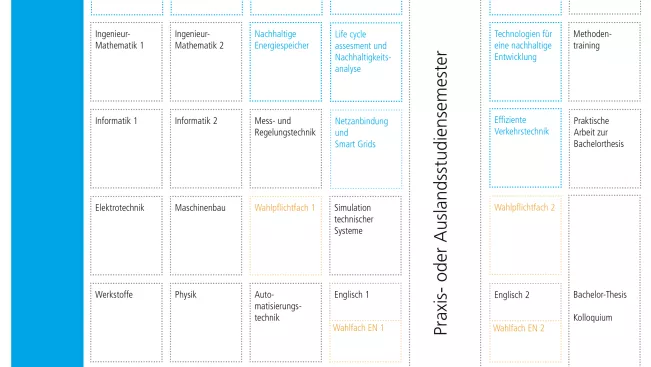Fachbereich Ingenieurwissenschaften und Kommunikation
Structure of the Study

Campus
Sankt Augustin
From winter-term 2017/18 there's a new study program at Bonn-Rhein-sieg-University: "Sustainable Engineering".

The study program
The program offers a systematic and practical approach towards sustainable engineering with a focus on technical aspects. The medium of instruction is German. The students are prepared for a career in both national and international contexts through foreign language courses. The program aims to provide general knowledge in engineering, a strong theoretical background as well as practical skills in modern methods of engineering, and to develop analytical decision making, social and language skills. It contains a continuous treatment of technologies supporting a sustainable development, such as renewable energy generation, energy efficiency or basics of the subject areas E-mobility, grid connection and traffic systems are treated. In addition, sustainability of technological innovations is continuously reflected throughout the program. Graduation requires 121 contact hours, including one practical term in a company.
The study program is structured into three interrelated parts:
In the basic year (1st+ 2nd term) basic knowledge of mathematics and natural sciences, renewable energy sources, electrical engineering, mechanical engineering, informatics, materials science and English language courses are taught. In addition, the students deal with issues of ethics and sustainability on an interdisciplinary level. Students are required to elect projects that foster practical and teamwork skills. During the profile year (3rd+ 4th term) the students study further engineering fundamentals from the fields of thermodynamics and heat transfer, energy storage, measurement and control technologies, automation engineering, energy-efficient residential buildings, sustainability analysis and grid connection. The second year also covers two practical projects and a number of elective courses, which provide the students with social, economic and methodical skills. A practical term in the 5th term provides experience in industrial surrounding. Proceeding from this, the focus year (6th+ 7thterm) includes a further specialization in the areas of process- and environmental engineering, intelligent traffic systems, technologies for sustainable development and business skills. The Students also acquire higher proficiency in English and further interdisciplinary qualifications. With the Bachelor thesis, students apply their knowledge to scientific and practical engineering problems.

Bonn-Rhein-Sieg-University also offers a splendid network with interdisciplinary research institutes TREE (Institute of Technology, Resource and Energy-Efficient Engineering (TREE) and IZNE (International Centre for Sustainable Development).